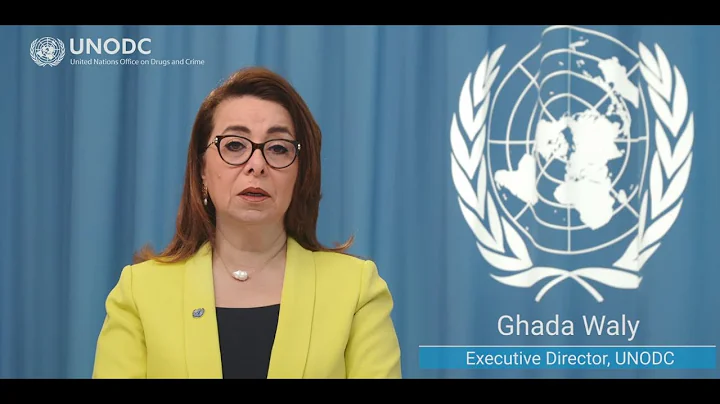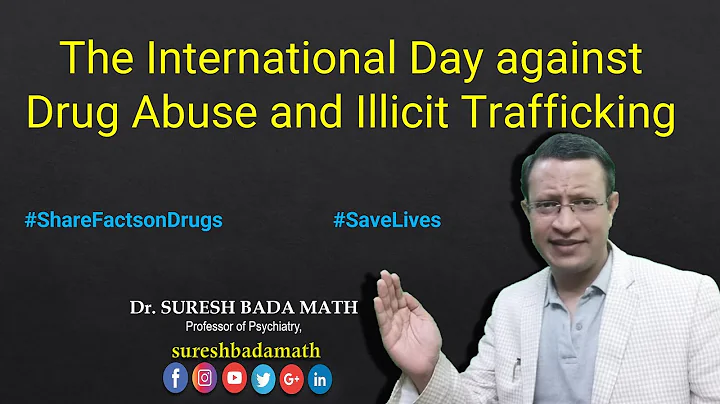
June 26th every year is the International Anti-Drug Day stipulated by the United Nations . Since drugs appeared in the world, the struggle between humans and drugs has never stopped. To this day, the huge profits from drugs still stimulate drug traffickers to take risks and create There are human tragedies happening one after another, and the anti-drug work is still facing a grim situation. China has long been troubled by the drug problem and has always implemented strict prohibition measures against drugs, which all originated from the humiliating war more than 180 years ago. In the course of China's modern history, opium was not just an ordinary drug, but an important cultural concept deeply engraved in the minds of every Chinese.
1. "Strictly Prohibited" and "Freely Prohibited"
Opium has a long history of entering China. It has been around since ancient times. At that time, it was widely used in the medical field. However, in the actual application process, its addictive properties The harm of opium has also gradually emerged. Facts have proved that opium can cause great damage to people's mental and even physical health.
When people realized this, the harm of opium had spread far and wide. By the Qing Dynasty, the situation was already quite serious. It's not that the rulers haven't thought about the solution. Since the culprit is opium, then an immediate ban on smoking seems to be the best choice. But this is not the case, because long before the Opium War, the court had already been divided into two groups around whether to ban smoking. started a two-year debate. Those who advocate "unbanning" believe that the more opium is banned, the more opium will be banned, so it is better to legalize it. On the one hand, it will allow the country to tax more, on the other hand, it will also save the cost of banning opium, and even encourage regions with conditions to do so. Grow your own opium, increase farmers' income, and resist the import of foreign opium to avoid the outflow of silver.

This argument seems quite funny today. In several Western countries that have legalized marijuana, the trend of drug proliferation has not only not been curbed, but has been further strengthened. This proves that the result of drug legalization can only create more tragedies. , but this argument was still quite popular at the time, and officials in Guangdong, the area most affected by opium poisoning, were the most supportive of this resolution, which shows that they were deeply entangled with the interests of drug traffickers. Fortunately, Emperor Daoguang was still very clear-headed and was firm on the ban on smoking, which was why Lin Zexu later banned smoking in Humen.

2. The unstoppable opium smuggling
But is the smoking ban really as simple as the lifting of the ban in Humen? For the British side, opium has become an indispensable source of fiscal revenue. According to relevant statistics, since the 19th century, in the fiscal revenue of the British and Indian governments, opium trade revenue has accounted for an increasingly higher proportion. In 1800, it accounted for only 3%, but after 1830, it exceeded 10%, and a large part of it did not flow into China through formal channels, but through smuggling.
How was opium smuggling conducted from the 18th to the early 19th century? There were two ways at that time: one was to rely on British retail merchants, under the protection of local merchants, to carry opium into Huangpu, Guangzhou, and then flow into the mainland. The other is that coastal merchants first purchased opium in Macau, and then sold it in batches to various shipowners in the open sea or directly to the mainland. For a time, Macau became "the most important storage place and transfer station for opium imported from the West to China."
The second smuggling system once encountered challenges due to an accidental case. In the first year of Daoguang (1821), a Macau villager named Ye Hengshu was caught selling tobacco in Guangdong. It was originally just an ordinary smuggling case. The Qing government But they used this to make a big fuss, not only cutting off traffic between Macau and Guangzhou Huangpu, but also intensifying the crackdown on opium smuggling. The difficulty of the smuggling business suddenly increased, forcing domestic merchants to give up their insurance coverage for foreign ships smuggling opium.

But opium smuggling did not decline because of the government’s ban. On the contrary, the booming demand for opium stimulated many local gentry, rich people, and even government servants to greedily share this piece of cake. They would use it more flexibly, quickly and easily. The armed merchant ship "Kuai Crab", which evaded government inspections, picked up the goods from the Lingdingyang barge and transported them to the mainland for distribution.In this way, although the transportation cost has been increased to a certain extent, due to the protection of local forces, the opium trade has developed more covertly and rapidly underground. Even if the government comes to impose a ban, they can learn the news in advance and transfer it. A new smuggling network with a tighter structure and clearer division of labor has spread throughout the entire Guangdong coast.
Opium has become the "commodity" that Britain has obtained the greatest benefit from China. It is obviously impossible to give up the huge profits. Only more dumping can maintain the prosperity of the East India Company.

Some people believe that the British did not regard opium as a drug. After all, opium drugs were not uncommon in Britain at that time, so the opium trade should be regarded as normal. Although this is true, it does not mean that the existence of opium is reasonable. At the end of the 18th century and the beginning of the 19th century, many British people could easily obtain opium, a monopoly drug, from pharmacists, and they numbed their spirits in illusory pleasure. Workers who have been cruelly exploited by big capitalists use opium to relieve physical and mental fatigue. Homeless people in slums use it to imagine a better future. Even poor mothers use opium-containing "baby tranquilizers" to relieve their pain. Childcare Burden.
The serious abuse of opium has led to a series of serious social problems. Various violence and suicide incidents are common, the crime rate continues to increase, and social order is chaotic. Naturally, this was condemned by many celebrities. The British's own newspapers and periodicals called the opium trade: " So evil that it is the greatest national sin", " I fully believe that this country encourages this evil trade. It is extremely bad, perhaps more vicious than instigating the slave trade."
Obviously the British also clearly know that opium is an addictive drug, but for the sake of the wealth of the Far East, they can blindfold God. Dumping abroad without any scruples driven by profit. This also included the participation of many upper-class nobles, which is why they would rather go to war with the seemingly powerful Qing Empire than give up the opium trade.

So since the opium trade is so immoral and despicable, has China taken any effective measures to deal with opium smuggling? The answer is not entirely satisfactory. Although the government has always been adhering to the intention of cracking down on the opium trade, the merchants who underwritten the opium smugglers in the past had official backgrounds, and the various people involved later had government backgrounds. At least many officials who could benefit from the opium trade were Those who have a negative attitude towards the ban. The rampant proliferation of opium among the people was enough to show the corruption and weakness of grassroots officials in the Qing government.
The most ironic thing is that as the ban on opium increases, more and more opium is imported. From 1821 to 1827, the average annual import volume was 9,708 boxes. From 1828 to 1835, the average annual import volume was 18,712 boxes. From 1836 to 1839, the average annual import volume increased to 35,445 boxes. It almost doubles every few years, and the intervals are getting shorter and shorter.
At the beginning of the 19th year of Daoguang's reign (1839), the Qing government sent Lin Zexu to Guangdong to ban opium, and promulgated the "Imperial Regulations on the Prohibition of Opium and Cigarettes" in an attempt to curb the opium trade by cutting off the source and sale of opium. Lin Zexu ordered a severe crackdown on smuggling and smuggling activities, and forced British and American businessmen to hand over more than 20,000 boxes of opium on overseas barges, and finally burned them all in Humen.
This is the famous "Humen Opium Destruction" incident in history. Although it seemed exciting, it actually did not achieve the expected goal. Guangdong's opium supply soon returned to its previous level. Because the Qing government did not realize that its opponent was not a few barbarians who had traveled across the ocean, but a huge smuggling network spread across the entire southeast coast. In this case, they only arrested a few opium traders and destroyed some. Opium simply treats the symptoms rather than the root cause, and the opium smuggling, transportation and sales system still exists.

3. The severely impacted economic system
The rampant opium trade and smuggling have fundamentally changed the pattern of Sino-British trade. In a short period of time, China has shifted from trading beyond the country to into the country. By the seventeenth year of Daoguang (1837), China's trade deficit had even reached 8 million taels of silver. Moreover, more silver was smuggled away by opium traffickers and was not included in official statistics. Together, it is estimated that after 1833, China's annual silver output exceeded 10 million taels.
The massive loss of silver brought about an imbalance in the proportion of silver and money, which in turn triggered a huge social crisis and brought the social economy to the verge of collapse. Originally, when farmers, small handicraftsmen, and small traders sold their products, they generally used copper coins as an exchange intermediary. When paying taxes to the government, they converted the copper coins into silver according to the silver price and paid the amount of silver. Now the quantity of silver is decreasing rapidly. , will obviously lead to an increase in silver prices, silver is expensive but cheap . At the beginning of the 19th century, 1 tael of silver could be exchanged for 1,000 copper coins. By the 1930s, 1 tael of silver could be exchanged for 1,700 copper coins, and the silver price rose by as much as An astonishing 7O%. After that, it remained at a level of more than 1,800 yuan per tael all year round. The people who suffered the most were the ordinary people. This meant that everyone’s tax burden increased invisibly. A large number of people could not bear it and fell into poverty. The "silver shortage" became "The people are panicking."

What choices will ordinary people make when faced with the pressure of survival? Foreign cigarettes were expensive, and there was almost no supply in the local opium market. Most farmers could not afford to smoke them, so they had no choice but to produce and sell them themselves. Therefore, a large number of farmers gave up food production and switched to poppy cultivation, creating a vicious cycle in which opium poisoning became more serious.
Local cigarettes are not subject to tariffs, are easily transported, and are half cheaper than imported cigarettes. As a result, they have rapidly expanded the market and even gained support from officials in various provinces. Faced with the high profits of opium, even Lin Zexu later lamented: " I despise planting opium poppy in the mainland, which does no harm to the problem. What I hate is that the people in the mainland are addicted to foreign cigarettes rather than local cigarettes. " The consequence is that a large number of The land has been invaded by opium poppies, and those drug addicts who smoke clouds all day long have no ability to work. This has aggravated the already serious contradiction between man and land and the food crisis. When fierce social contradictions come together, an outbreak is inevitable.

Wen Shijun said
As Lin Zexu said, if there is no ban on opium, there will be " there will be almost no soldiers in the Central Plains to defend the enemy, and there will be no money to pay. ". Obviously, the smoking ban has become a must-do policy, but that is Such a fact that everyone knows has repeatedly encountered difficulties in the actual implementation process. Especially after the first Opium War, the process of banning smoking became increasingly difficult. Since then, opium has become an important "commodity" exported by Britain to China, and its poison was so far-reaching that it lasted throughout the last 70 years of the late Qing Dynasty and even the Republic of China. It was not until after the founding of the People's Republic of China that the government launched a thunderous anti-drug campaign that eliminated the drug epidemic in a short period of time and restored peace to the people.
References
Fairbank: "Trade and Diplomacy on the Coast of China", Harvard University Press, 1953.
Ma Shi: "History of the Foreign Relations of the Chinese Empire" Volume 1, Shanghai Bookstore, 2006.
(Author: Haoran Wenshi • Xinran Zide)
This article is an original work of Haoran Wenshi, a self-media popularization of literature and history science. Reprinting without authorization is prohibited!
The pictures used in this article are all from Internet searches unless otherwise noted. If there is any infringement, please contact the author to delete it. Thank you!
Haoran Literature and History is a self-media for popularizing literature and history with an all-doctoral team, and is a high-quality author in literature and history on the mainstream platform of the entire network. makes professional history more interesting and interesting content more in-depth. Ancient and modern, Chinese and foreign, archeology and cultural heritage, for more content please pay attention to our public account of the same name (id: haoranwenshi)





















